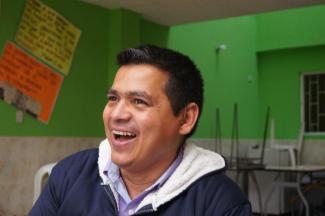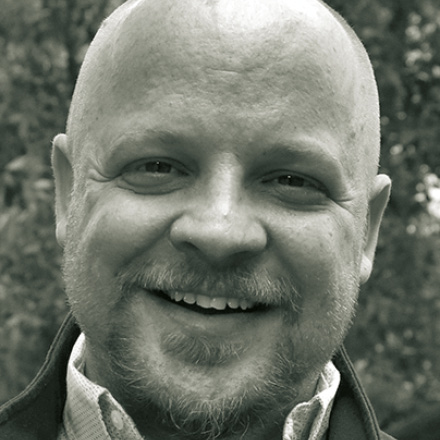Reconciliation
From guerrillero to peace activist

Born in 1968, Sabas Duque grew up in poverty on the Caribbean coast. Like his 22 siblings, he could only attend school long enough to learn how to read and write.
At the age of 15, he and a dozen other young boys were selected by a FARC commander to maintain order in their village as militiamen. “My greatest dream came true when I was given my first gun,” he recalls. Where he lived, only people with guns had authority. Membership of the FARC earned Duque respect. The son of poor farmers would not have been able to achieve that kind of status in civilian life.
Duque married during his time with the FARC. One afternoon, when he was away from home, one of his comrades raped his wife. The guerrilleros punish this kind of offence severely. His commander gave Duque the permission to kill the rapist. “I killed him, but I was haunted by what I did,” he says. “After that, I retreated from the FARC. I wanted a legal existence.” The couple moved to the city of Barranquilla, where Duque found work in a factory, and they had their first child.
Then Duque got an attractive offer. He was invited to work in the FARC logistics division and to organise deliveries to the “Caribbean Block”. The good pay was tempting, so he took the job. Over the years, he rose through the ranks and ultimately became the head of logistics for the Caribbean. In this time, he and his wife had two more children. One day, while delivering a weapons shipment, Duque was captured by the military and handed over to the paramilitaries. They tortured him, demanding information on behalf of the military. “I spent a year in prison until my commander bribed a judge. The FARC needed me to keep working in logistics.”
Six months after his release, Duque became the victim of an assassination attempt. “I was lucky to survive, but I was left paralysed and almost deaf. I couldn’t keep working for the FARC,” he says. In 2004 he finally turned his back on the guerrilla organisation.
Together with other ex-combatants, he founded a committee for reconciliation and reparation in Bogotá. He has been working for the Foundation for Reconciliation for the past nine years. The Foundation is an international civil-society organisation that offers training to promote a culture of forgiveness and reconciliation. The Foundation runs several centres of reconciliation, and Duque directs one in Bogotá.
He says he wants to make it easier for former FARC combatants to reintegrate into society. To that end, his centre cooperates closely with the Colombian Agency for Reintegration. The centre offers a space for peaceful coexistence, where former enemies from the FARC and the paramilitary outfits, as well as victims of the conflict and other neighbourhood residents can meet. Many in the area consider Duque a role model, both because of his warmth and his commitment to a peaceful Colombia.
Maya Perusin Mysorekar is a student and has worked for the “Fundación para la Reconciliación” in Bogotá.
maqpam@hotmail.de
Links
Foundation for Reconciliation:
https://www.insightonconflict.org/conflicts/colombia/peacebuilding-organisations/fundacion-para-la-reconciliacion/
Colombian Agency for Reintegration:
http://www.reintegracion.gov.co/en











